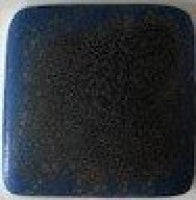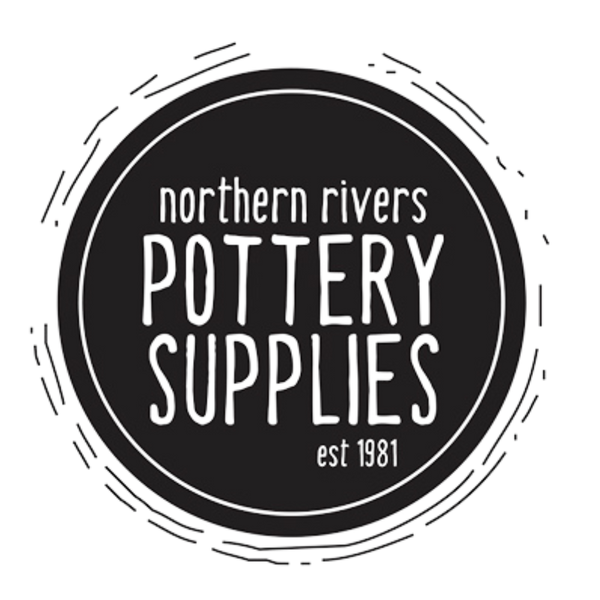Cesco Bluestone Satin Glaze - Powder
Cesco Bluestone Satin Glaze - Powder
Couldn't load pickup availability
Share
1280-1300 stoneware glaze
A beautiful blue where thin and black where thick. No change under reduction but dark bodies can give a blue beige mottle.
Cesco Powder Gloss Glaze. Firing Range 1280-1300ºC. Stoneware
Food Safe No Lead frit is used in the manufacture of this product.
Australian Made with local support available
Setting up a glaze from powder for Dipping or Spraying
MIXING
For dipping or spraying
Wearing a suitable mask, sprinkle the glaze powder into a suitable container of water and stir thoroughly. Leave to settle overnight and pour off surplus water. Stir, sieve through an 80 mesh or finer sieve, then add water if necessary to achieve the desired consistency a bit thicker than Full Cream Milk.
Mixing proportions start with: 1kg powder to 1150mL water
The best range for the final Litre Weight will be between 1400-1600 gm per litre
TO REMOVE water: allow the glaze to settle and skim off clean water from the top
When ADDING water: add very cautiously, stirring well between additions
When some liquid glazes settle out, particularly over a long period of time, they sometimes set hard at the bottom of the container, making them difficult to re-mix. Others may settle during use and consequently demand thorough stirring or agitation during the dipping / spraying session. To correct this defect, a flocculent or anti-set solution should be added a little at a time, (see Epsom Salts solution recipe below) stirring it in very well until the settling stops. Add carefully or the glaze will dry slowly on the ware and may cause mud cracking, peeling off the biscuit and perhaps crawling during firing. Glazes that have a high clay content, raw zinc oxide, magnesium carbonate, talc, etc., or have had excess dosing of anti-set will have this defect. The cure is to add very cautiously, small quantities of a 10% solution of deflocculant - Soda Ash, Dispex or Sodium Silicate, stirring well, until normal drying and behaviour occurs.
APPLICATION
Use either a bucket or glaze wok or suitable spray gun. The type of glaze and the effect desired will indicate how the ware should be applied: transparent glazes should be thinner than opaque ones so dip once only. A rutile glaze may be dipped once or twice for varying colour effects. Walker Ceramics dipping glazes are delivered with a litre weight of 1500-1750 grams/litre (Specific Gravity (SG) of 1.5-1.75) depending on glaze composition. After application the glaze layer should be as thick as the diameter of a standard steel paper clip.
Litre Weight bottles are available to check your litre weights - Code HC80.
They are used to calculate accurate litre weights when mixing casting slips and dipping glazes. It is supplied with a simple conversion chart and also a method to test the accuracy of your scales. Litre weights can be checked on the supplied chart between 1380 and 1775 gm/L. (To make Epsom Salts solution, mix 300 gm of Epsom Salts with 1 litre of hot water.)
It is highly recommended to use a Ford Cup or Viscosity Cup and aim for run-out time of 15 to 20 seconds.
After application the glaze layer should be as thick as the diameter of a standard steel paper clip.
For Brushing
Our Brushing Medium (Product Code CB180) and Painting Medium (Product Code CB160) have been developed so that they may be mixed with powdered glazes, stains etc. by simply stirring with a cake beater or paint stirrer and running the liquid through an 80 mesh sieve.
Suggested proportions are approximately 1 litre of medium to 1 kg of powder plus water as required


